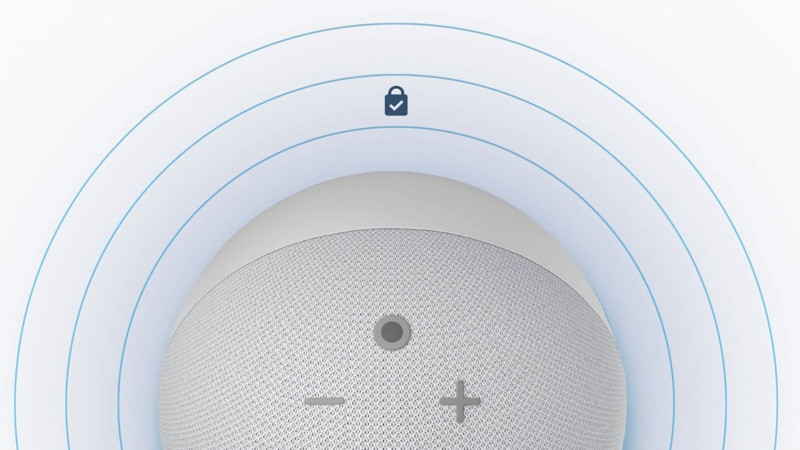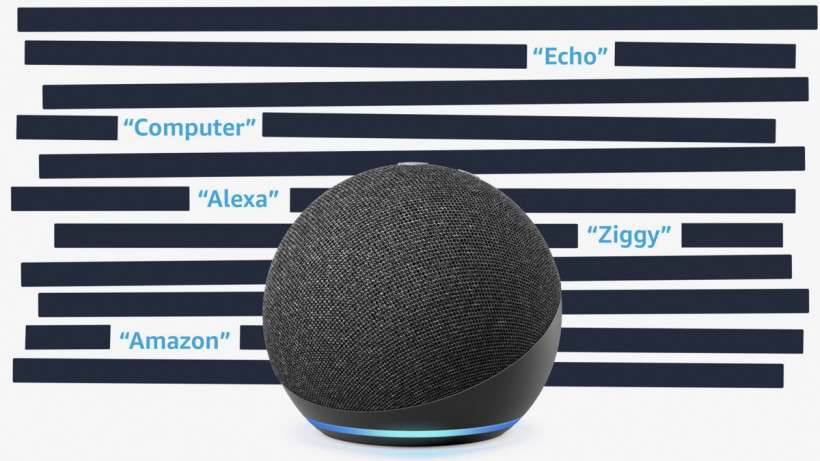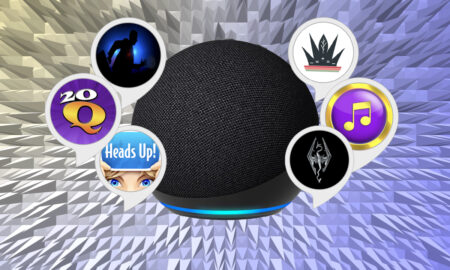We answer whether or not an Echo speaker can listen to your conversations
If you own an Alexa smart speaker – whether it’s a cheap Echo Dot, a high-end Echo Studio, or even a third-party Alexa speaker like the Sonos Era 100 – you may have wondered from time to time: “Is Alexa always listening to me?”
The short answer is yes, Alexa is always listening to you. Or, rather, the microphone on your Alexa smart speaker is always active (by default, at least) and is constantly monitoring voices in your home in order to hear its wake word.
If your Echo speaker wasn’t always listening there’s no way it would hear your commands starting “Alexa” (or another word if you’ve changed the Alexa wake word).
You can, of course, disable the microphone on your smart speaker and make it so that you need to push a button to activate Alexa… but that’s not really the point of having a voice assistant on hand, is it?
Keyword Spotting
The good news is – despite what conspiracy theories exist – Amazon, nor Alexa, is spying on you.
Amazon uses technology it calls ‘keyword spotting’ to listen out for your wake word.
Amazon states that “Echo devices are designed by default to detect only the sound waves of your chosen wake word, and everything else is ignored. .. all other audio passes through the device until the wake word is ‘caught’ and sent to Amazon’s secure cloud, where your request is reanalyzed to verify the wake word was spoken.”
Amazon states:
“Alexa is a part of your life only when you ask Alexa to be. By default, Alexa begins listening after your Echo device detects the wake word, so Alexa does not listen to your personal conversations.”
What about adverts appearing after talking about certain products?
One of the biggest theories you’ll find online regarding Alexa listening revolves around digital adverts being presented to a user after they have had a conversation about a subject within earshot of their smart speakers.
For example, a couple has a discussion over dinner about what equipment they’ll need before their weekend camping trip, and, lo and behold, the soon-to-be campers are bombarded with adverts on websites and social networks about tents, stoves and sleeping bags.
The obvious answer to this situation is that, prior to the dinner conversation, the couple had been looking and researching camping-related articles and products online – even if they don’t remember doing so.
Websites use cookies to present personalized adverts to users based on their previous browsing history, so it makes perfect sense for these sorts of adverts to be presented.
Smart home privacy: What Amazon, Google and Apple do with your data
However, there’s no evidence that your Amazon speakers are listening in with the objective of presenting you with personalized adverts and the like.
That’s not to say our digital devices don’t listen to our conversations in order to market products and services it thinks we might be interested in.
Back in 2017, The New York Times reported on some software – dubbed Alphonso – contained within some Android games, that collected TV data for advertisers, by listening to what was playing on their televisions.
This is all legal, as you agree to this when you accept the terms and conditions – remember to always read the fine print, kids.

Alexa and targeted adverts
However, just because – officially, at least – Amazon isn’t listening in so it can bombard you with targeted ads from your regular conversations in earshot of an Alexa speaker, that doesn’t mean that tailored ads aren’t part of the Alexa setup.
In April 2022, a report went live declaring that Amazon uses voice data from Alexa interactions to serve targeted ads.
The report, from researchers affiliated with the University of Washington, UC Davis, UC Irvine, and Northeastern University, states that Amazon (and third parties) collect data from Alexa interactions and share it with as many as 41 advertising partners.
It’s important to distinguish that they mean actual conversations you have had with Alexa – not your regular conversations that took place in the same room as an Alexa smart speaker; although the report does suggest the behavior is inconsistent with Amazon’s own privacy policies.
An Amazon spokesperson told The Verge: “Similar to what you’d experience if you made a purchase on Amazon.com or requested a song through Amazon Music, if you ask Alexa to order paper towels or to play a song on Amazon Music, the record of that purchase or song play may inform relevant ads shown on Amazon or other sites where Amazon places ads.”
Does Amazon record you all of the time?
As mentioned above, thanks to the ‘keyword spotting’ tech, Amazon only processes, and records, what the software determines to be genuine Alexa commands.
Amazon states that no audio is stored or sent to its servers unless the smart speaker detects the wake word.
You’ll know if Alexa is recording and sending your command because the blue light will fire up.
Explained: What Alexa’s color lights mean
All of your voice recordings streamed to the cloud are encrypted and securely stored on Amazon’s servers and are associated with your Amazon account. You can also delete your Alexa history at any time.
Do humans listen to my Alexa commands?
Amazon states that a small sample of Alexa interactions are monitored by Amazon employees in order to “help Alexa understand the correct interpretation of a request and provide the appropriate response in the future.”
This basically means humans are in place to help complement the machine learning process.
You can choose to opt out of this, though:
In the Alexa app, tap the ‘More’ tab and then choose ‘Settings’.
You’ll find a ‘Help Improve Alexa’ toggle in ‘Alexa Privacy’ > ‘Manage Your Alexa Data’.
Turn it off and your recordings will not be used.
Amazon has this helpful guide on the journey of your Alexa voice commands, if you want to understand the process more:






